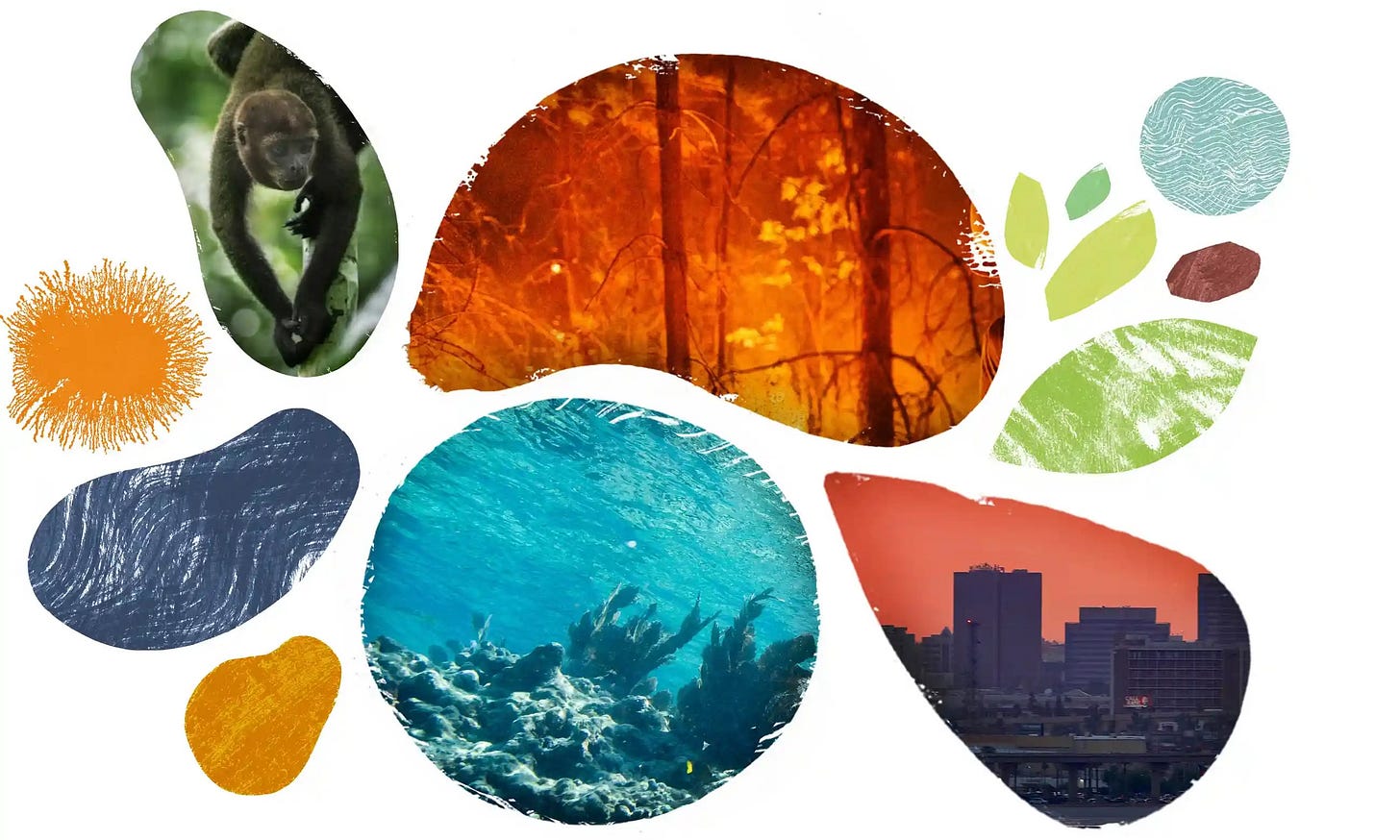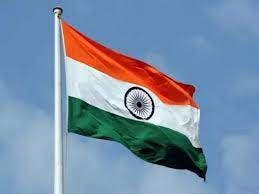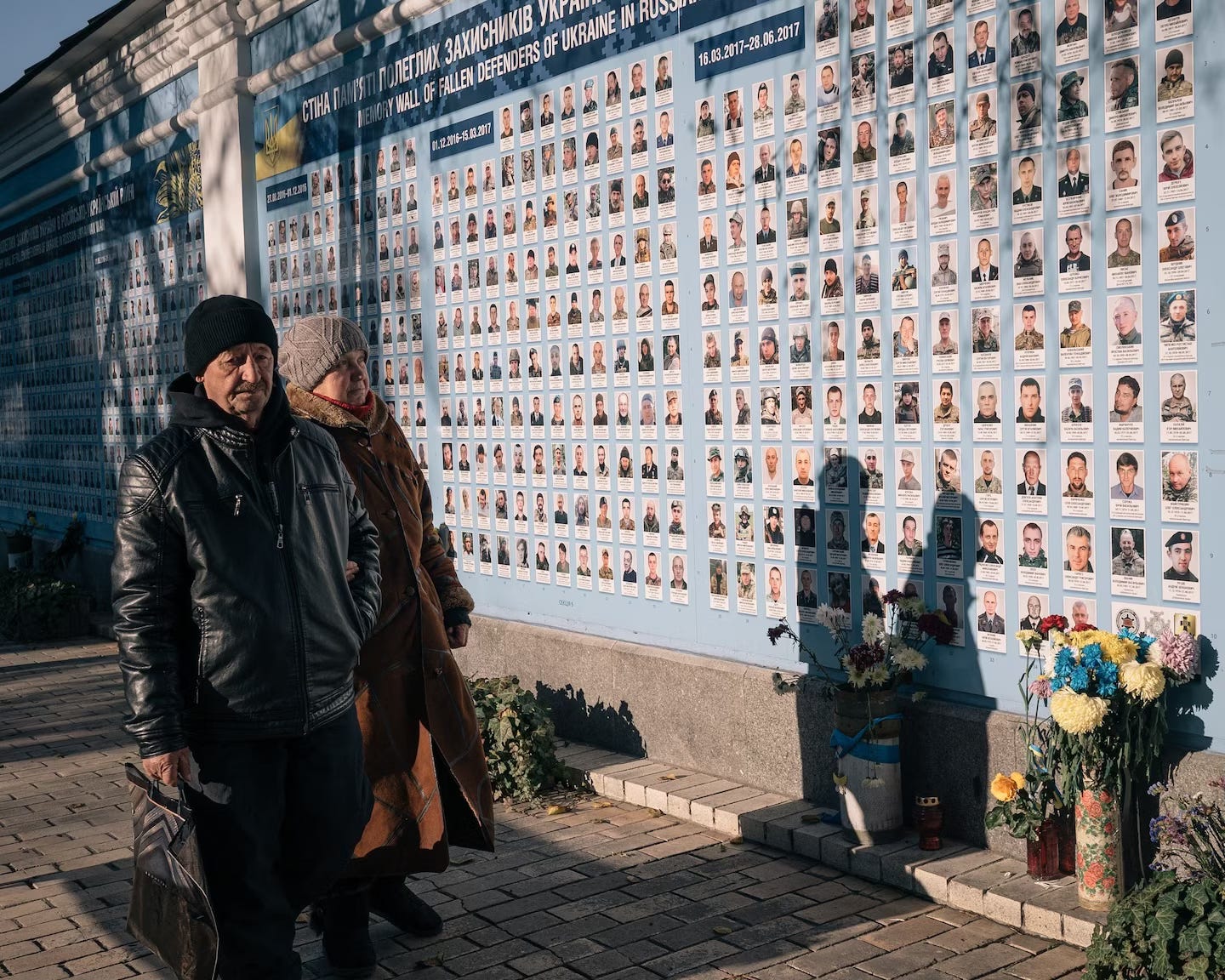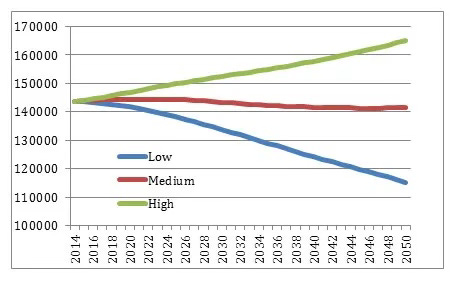1) Death v. Displacement
NBC News: Solutions discussed for Gaza's future range from workarounds to the catastrophic
Foreign Affairs: Israel’s Failed Bombing Campaign in Gaza
AP: Israel and US are at odds over conflicting visions for postwar Gaza
Per my diminishment-of-Gaza theme, NBC reports that “Palestinians in Gaza say life has become a cruel choice between death and displacement.” Learned scholars like Robert A. Pape, who has studied bombing campaigns for decades, describe this attempt to turn the people against Hamas through punitive destruction as a complete failure.
I agree.
This bombing campaign will not work toward that end. But I don’t believe it was ever designed to. The reason why there is no realistic sense of The Day After is that Israel isn’t seeking one. The IDF is seeking such a complete destruction of the Strip that it becomes unfeasibly governable under any scenario.
Israel knows it cannot destroy Hamas, though it can come up with a great list of dead leaders. It also knows it cannot end Hamas’ appeal among the Palestinian people. Finally, it knows it will pay a very heavy diplomatic price for this action.
Israel knows all that and has made the decision to eliminate this particular threat vector for good. Again, I expect a smaller Strip after this, and one that is close to a no-man’s land, thus eliminating the who-rules-Gaza conundrum. This situation may go on for quite some time, perhaps forever.
Gaza had 2.2 million inhabitants before this all began. NBC says 1.9m of them has fled down into southern Gaza. Now the IDF is wreaking serious destruction there. The goal seems obvious enough: push them all the way out & end the Gaza failed experiment.
Can it work? If Israel really wants it to happen, yes. But the US is opposed to this idea and signals that this thing needs to end in weeks, not months.
The AP story sums up the competing visions:
Israel’s prime minister, Benjamin Netanyahu, this week announced that Israel would retain an open-ended security presence in Gaza. Israeli officials talk of imposing a buffer zone to keep Palestinians away from the Israeli border. They rule out any role for the Palestinian Authority, which was ousted from Gaza by Hamas in 2007 but governs semi-autonomous areas of the occupied West Bank.
The United States has laid out a much different vision. Top officials have said they will not allow Israel to reoccupy Gaza or further shrink its already small territory. They have repeatedly called for a return of the internationally recognized Palestinian Authority and the resumption of peace talks aimed at establishing a Palestinian state alongside Israel.
So expect the bombing to be fierce until Biden breaks and feels the need to finally try and rein in Netanyahu. Then we shall see how bad Israel wants this outcome.
2) Sixth Great Mass Extinction Period Repeats #4?
Study Finds: 200-million-year-old mass extinction event may be happening again right now
Guardian: 10 ways the climate crisis and nature loss are linked
IFLScience: Frozen Methane Under The Seabed Is Thawing As Oceans Warm – And Things Are Worse Than We Thought
This time, it’s human-centric, last comparable time it was volcano-driven.
From the StudyFinds piece:
Approximately 200 million years ago, Earth faced its fourth major mass extinction, triggered by a surge in greenhouse gases stemming from volcanic activity. This event led to rapid global warming, reshaping the planet’s biosphere and marking the transition from the Triassic to the Jurassic period. Today, many scientists believe that Earth is undergoing another mass extinction, largely due to similar climate shifts.
Understand that something like 3/4ths of all marine species disappeared, along with 95% or so of the land species. This was a serious reordering of life on the planet and it was all about GHG building up. We have replicated the volcano-driver with our industries, it’s as simple as that.
Per the Guardian piece, all sorts of vicious cycles are emerging:
Wildfires degrade ecosystems and degraded ecosystems are more vulnerable to wildfires
Heatwaves on land and in the ocean kill species and that makes it harder for both environments to absorb carbon
Extreme weather makes reclamation harder, and drives people to more vulnerable ecosystems
The circle of life, folks.
And now we get word on what might be the worst of these do-loop releases: methane hydrates deep in the ocean might be released as those bodies of water warm, thus putting the worst type of GHG into the water and air. Grim stuff.
3) Looking for Mr. Goodjob
WAPO: India’s women are staying in school longer — but not for their careers
Fascinating bit about how Indian women are staying in school longer, which is great for delaying marriage and pregnancy and thus the key way to engineer and extend a demographic dividend. First thought of researchers: these women are sort of hiding out in school because the job market isn’t good for them as India hasn’t done a good job of promoting the integration of women into the labor force — like China did.
This is considered a big problem for India’s rise.
But this is what researchers found out: many women are staying in school because marriage prospects don’t seem good enough.
That complicates the process further, yes? It’s like women need men to get good jobs so they’ll marry them AND THEN try to enter the work force. It’s almost like India has to figure out how to rush through its version of America’s 1950s and get to our 60s and 70s pronto! Really interested to see how this plays out.
4) The EU as the Regulatory Superpower
WAPO: E.U. reaches deal on landmark AI bill, racing ahead of U.S.
For a long time I’ve described the EU as the rules superpower of note in this system and here they strike again, “racing ahead” of us to create “a global standard to classify risk, enforce transparency and financially penalize tech companies for noncompliance.”
Bit embarrassing for us, and yet reflective of our slower, more hands-off-earlier approach. In that sense, good for us and the world system that the EU steps into that void as early as possible to start the learning process for us all.
5) Let it Snow, Let it Snow, Let it Snow … NOT!
CNN: New maps show where snowfall is disappearing
Per my “new map” mantra, snowfall around the planet is being rearranged by climate change. Seems trivial at first, like me giving my snowblower away to a friend when leaving Wisconsin and coming to Ohio. But understand:
Snowfall is declining globally as temperatures warm because of human-caused climate change, a new analysis and maps from a NOAA climate scientist show.
But less snow falling from the sky isn’t as innocuous as just having to shovel less; it threatens to reinforce warming, and disrupt food and water for billions of people.
Climate scientists say the future of snowfall is pretty clear: A warmer world driven by human pollution means precipitation is more likely to fall as rain than snow, all else being equal.
That is a huge change in process, because snow coverage reflects solar heat, plus it stores up freshwater in the water cycle so it can melt over time and thus be more advantageously doled out over the spring and summer. As one expert put it:
“California is the poster child — it does not rain in the summer in California, and so the snowmelt runoff, the snow that waits and runs off later in the season, is absolutely essential for all of the ecosystems, all of the agriculture, all of the cities or anyone who wants water during the dry season.”
So another big NOT GOOD.
6) On Environment, China is Everything Everywhere All At Once
DW: Is China a climate hero or a fossil fuel baddie?
NYT: 22 Countries Pledge to Triple Nuclear Capacity in Push to Cut Fossil Fuels
Going back to the expert workshops I did with Cantor Fitzgerald atop the World Trade Center before 9/11: we did one on the future of energy in Asia and no matter how we ran the data or debated policy, it was clear to all that China was the true “gotta pursue an all-of-the-above approach” on all forms of energy because of its steeply rising demand curve. You can think maybe that things have slowed down with the economy but not so much as you might imagine. Now, China is far more urbanized and features a middle class about the size of the entire US and guess what? They want a lot of electricity and they want cars and the ability to go places with them — all very America in its golden age, right? See the USA in your Chevrolet!
So yeah, China is a poster boy for all that is good and progressive in the Green Revolution and it is a wanted-poster for everything that is bad and regressive on fossil fuels. It will be stuck doing it all for some time now. Get used to it.
The West, in its more advanced economic state, is able to pivot off fossil fuels far more realistically. Not a popular political track, but it makes sense for all sort of enviro and efficiency reasons.
7) Is China Elevating Africa’s Game or Simply Shifting Gears?
SCMP: China grants tariff-free access to 6 African countries in bid to boost food imports and rebalance trade
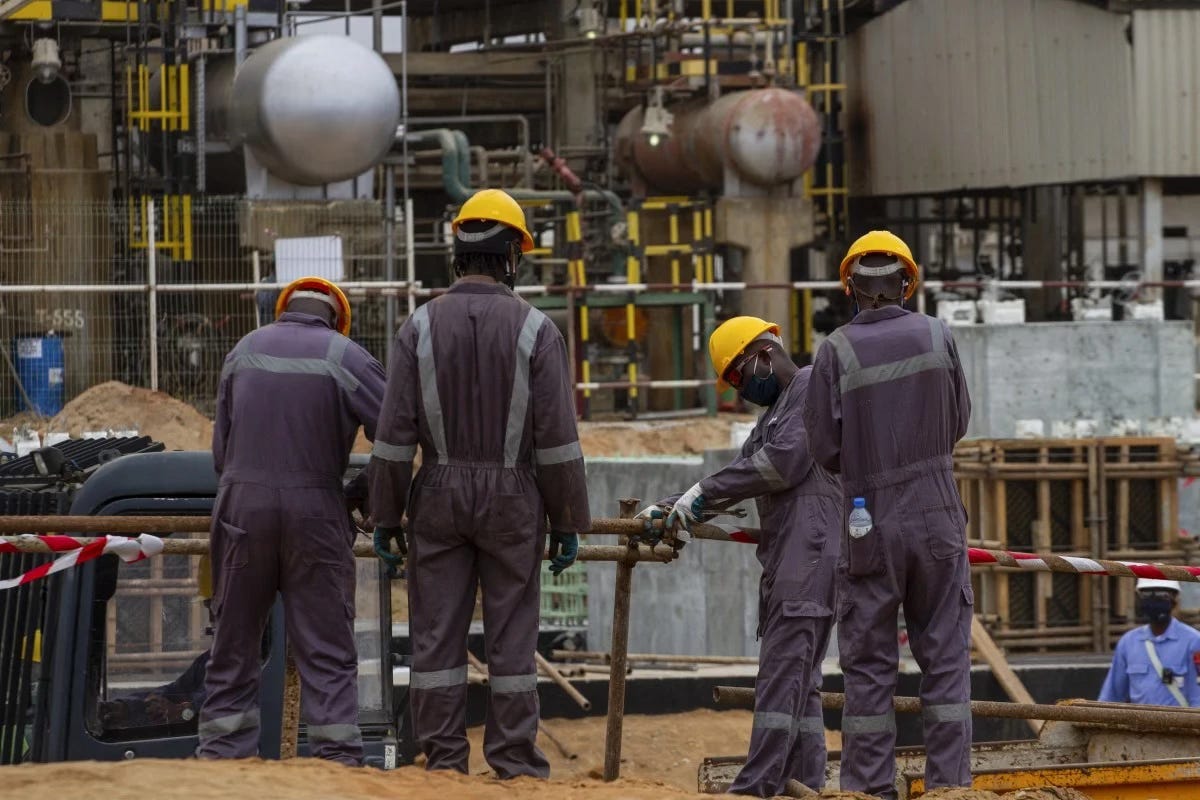
China has for a while now largely replicated colonial trade patterns with much of Africa: take raw materials and energy out, shove in cheap consumer goods. China now says it wants to address that trade imbalance, but the tariff cuts it’s largely offering have to do with food and not manufactures, so not all that much of a change for Africa.
Bears watching, because …. eventually, both China and the world have to address a huge youth bulge now building in Africa and heading toward employment status. Mid-century, 1 out of 4 people on our planet will be African and young and looking for work that supports a middle-class lifestyle. We collectively either make that happen or have a huge problem on our hands — and that’s before we factor in what climate change is going to do to Africa.
8) India Gets Seriously Diplomatic
SCMP: Indian diplomacy is getting a boost – but it’s still ‘no match’ for likes of US, China or UK
India looking to ramp up its diplomatic corps, because it is seriously weak relative to the nation’s growing global interests.
Why?
Money issue:
The Indian exchequer has allocated merely 0.4 per cent of the country’s annual budget to the Ministry of External Affairs in the last five years, and the foreign ministry is among India’s least-funded federal ministries.
India portrays itself as the champion of the Global South and yet doesn’t have the diplomatic presence there to back up that claim. This must change and when it does it will indicate just how seriously New Delhi is about making that brag come true.
9) Monroe Doctrine: The Agriculture Corollary
Stateline: This land is our land: States crack down on foreign-owned farm fields
Wrote of this in America’s New Map: food vulnerable nations (basically most of the Eastern Hemisphere) buying up land in the West Hem as an end-around on trade. Foreigners currently own about 3% of US farmland — a tripling of that percentage over the past couple of decades.
States are responding and we all see the headlines — and GOP prez candidate brags, but it’s not a new fear, as the Stateline story points out:
Nearly half the states have some restrictions on the books, some of them dating back to the 1700s.
As climate change unfolds, this will be a hot-button issue like few others.
10) Where Ukraine is Most Vulnerable — Near Term
WAPO: Ukraine cracks down on draft-dodging as it struggles to find troops
Ukraine has a population of 44m and Russia has one of 144m, so the math is pretty easy: Ukraine loses a war of attrition — if that is what Lviv’s Western partners are willing to allow.
11) Where Russia is Most Vulnerable — Long Term
Aljazeera: Russia limits women’s access to abortion, citing demographic changes
Russia is in a serious demographic decline and nothing is going to change that — not even the go-to-crackdown-on-abortion cited here.
As I argue in my book: Russia, with all that warming land, is a target across this century of changing climate. It is vastly underpopulated and that population is shrinking. So long as Putin and his types rule, immigration is no answer (never really was). Thus, we are watching the shrinking of the Sick Man of Eurasia here. Eventually, he gets put out of his misery by more desperate forces.
12) A Reminder About Just How Bad Trump the Sequel Would Be
WAPO: How an Ohio senator’s stunt proves the Trump dictatorship theory
J.D. Vance, a blood-sucking-VC-turned-righteous-populist is a perfect expression of the Age of Trump: rich people conning poor people into acting against their own economic interests. Talk about the opioid of the masses (pun intended).
Vance is a serious embarrassment for this Ohio voter, and he proves his cravenness yet again by trying to target my personal hero Robert Kagan because of his recent and widely read warning about dictatorship in America if Trump returns to power (VERY MUCH WORTH THE READ).
The gist of his threat:
Sen. J.D. Vance wants Attorney General Merrick Garland to investigate my colleague Robert Kagan for allegedly inciting insurrection with his recent essay warning of the “increasingly inevitable” dangers of dictatorship under Donald Trump.
For good measure, the Ohio Republican wants Secretary of State Antony Blinken to look into whether Kagan’s wife, Undersecretary of State Victoria Nuland, should have her security clearance revoked because her “close relationship with her husband might compromise her judgment about the best interests of the United States.”
Joe McCarthy would be proud.






